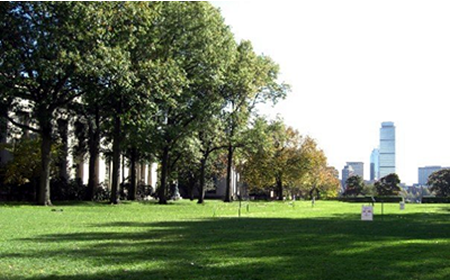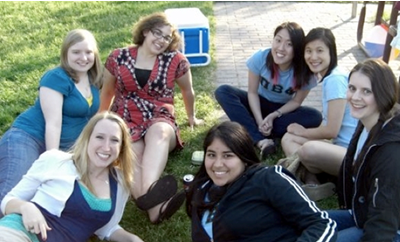

Five Secrets to College Life
by Marcella Vokey
I still remember the day I received the large tube in the mail containing, among confetti and a poster, my acceptance letter from MIT. Since then I have had many experiences as an undergraduate and now know the real questions an acceptee should be asking.
Here are five useful lessons that will help me through future applications to graduate school, and hopefully can benefit the next generation of potential collegians.
1. Colleges don’t accept students incapable of handling the workload.
Freshman year was academically challenging, as anyone would expect when transitioning to higher education. My studies were the hardest they had ever been, but I learned to trust the admissions office and decided that these classes were still within my limits.
To me, this was a valuable realization. Often enough it seems like there isn’t enough time, or the material is too difficult, for anyone to survive a semester – especially during final exams. Now, instead of dwelling on the seemingly impossible, this idea instills the necessary confidence for me to succeed.
2. Be Flexible.
Dorm life was another major transition. Sharing a room, in itself, can be frustrating if you’re used to personal space. To my surprise, having a roommate was the best part of that first semester.
My roommate was someone to study with, eat dinner with, and go out with. While there is no guarantee that the people you live with will also end up being your close friends, being open minded and flexible made it easier to get along.
By not focusing on something petty like how messy her side of the room was, I was able to see how smart and fun my roommate was. There’s no question we had very different personalities and living habits, but she is still one of my favorite people from MIT.
3. College is not just about the academics.
While very important, education has been a small part of my overall experience at MIT. Sports, clubs, and friends are also major parts of college life.
There are so many activities and opportunities that can enrich your life over the course of four years at college. Admittedly, I don’t have a perfect GPA – it would be unrealistic given how many activities I enjoy doing. The friends, memories, and skills I’ve acquired from these extra-curriculars are as important to me as any A.
I’ve planned events for over a hundred people, made friends from all over the world, and have been published in both our school paper and student magazine. None of these things would have happened if I hadn’t tried everything that interested me.
There have been semesters when I didn’t participate in any activities, and while my grades improved there was little to keep me motivated and interested. At the very least, joining different groups gave me a good excuse to not do homework on those nights I couldn’t face it.

4. The Princeton Review can be wrong.
I remember using online resources to prepare me for college. I Googled everything from “College necessities” to “MIT stereotypes” to prepare myself for school.
Websites like the Princeton Review may be accurate in their own way, but they have little accuracy in conveying what your college will really be like.
I remember seeing MIT ranked on lists for ugliest campus and hardest working students. So it would be logical to conclude that MIT is a dungeon filled with students who have no life, right? Wrong.
Since getting here, I know MIT has a beautiful campus because the places like the Boston Public Garden are only a few train stops away. And while I agree that MIT students work a lot, it is also true that they have fun. Nowhere else would I expect to see someone build a hovercraft and take it for a spin.

Ultimately, it is important to be wary of the information out there. Visiting a school and talking to students (not tour guides) was the most telling experience by far. Books and brochures don’t convey the whole story. Only the current students have an accurate perspective. Talk to them.
5. Be a little selfish.
College is a new place with new people, and most students are on their own. A lot of freedom comes with college. What to have for dinner, how much to study, and when to do laundry are some of the new decisions I had to make when I left home.
But there were some obviously more important choices to make – such as picking a major. People had different opinions about what a lucrative or respectable major would be, and initially I chose one that wasn’t a good fit. Since then, I’ve switched majors and I enjoy college a great deal more.
This advice applies to more than what you study. If there is any time in your life when you will have the chance to learn about and trust yourself, it’s after your high school graduation.
Being a little selfish gives you the chance to learn about yourself before others give their input. And who knows you better?
The advice I am giving is only what my own experiences have taught me. Others might graduate from college with different ideas about the right way to do things. There are even several books on the subject and they all say something different.
Regardless, college life is completely different than how my life used to be, but it has never stopped being an adventure.
Marcella Vokey just completed her Junior year at the Massachusetts Institute of Technology, where she majors in Political Science with a minor in Materials Science & Engineering.
She’s an active member of her Sorority, Pi Beta Phi, and has been involved in a number of other student groups on campus including the student newspaper and dorm government. Though still undecided, she plans to make a career out of her interest in current events and pursue politics or law.
Vokey spent her entire life on Cape Cod, living and attending high school in the town of Chatham. She got her first taste of journalism from an internship at Chatham’s Cape Cod Chronicle.
 |